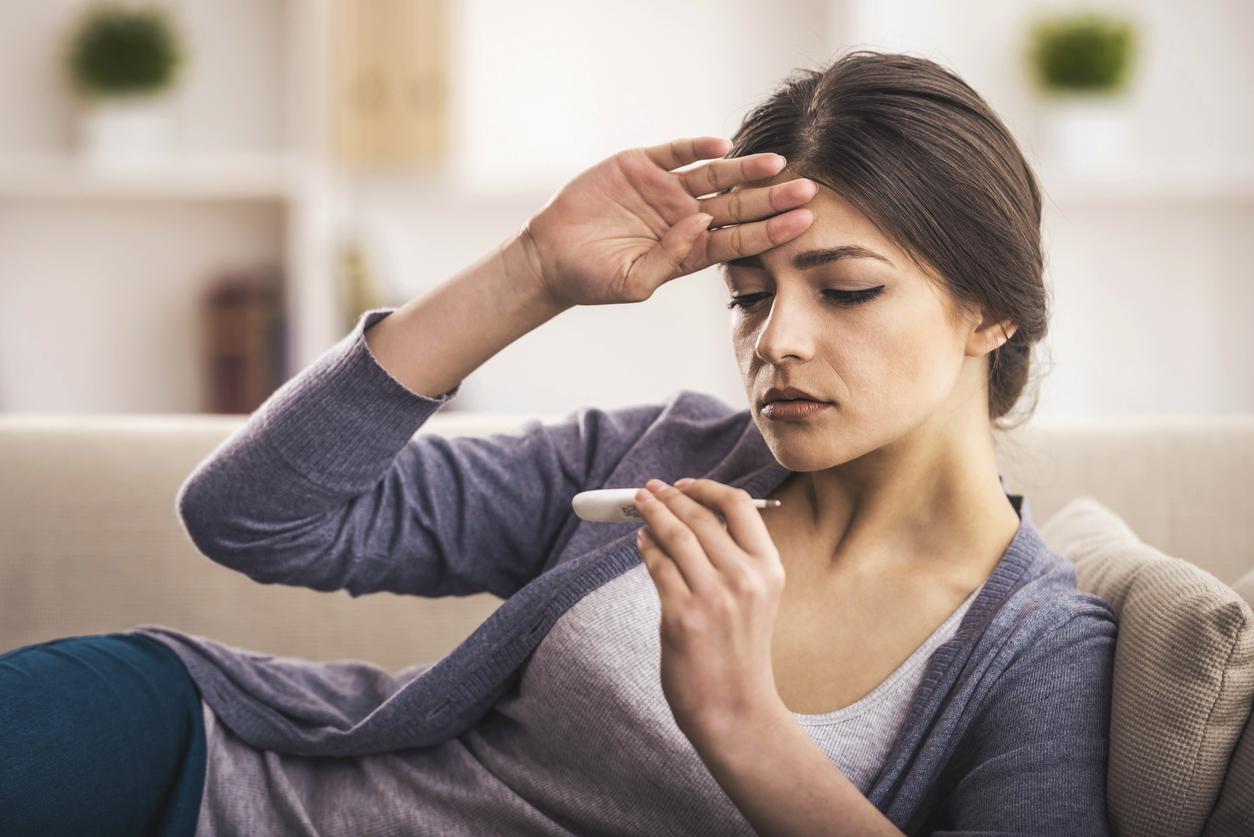
Under the armpit, under the tongue, in the ear, or in the anus? And if you have a fever, what is the best thing to do or not to do?
Ears not reliable
The most reliable is, still, measuring the temperature through the anus. Nowadays, the ear thermometer is becoming more and more popular. But studies cannot yet prove that it measures equally reliably. It is also difficult to insert the ear thermometer just right. Measuring under the armpit and tongue is not recommended as it is too inaccurate – it indicates too low a value. Under the armpit one degree too low, under the tongue half a degree too low.
Drink a lot, take a rest
These advices are important if you have a fever:
• Drink more than two liters a day. You sweat a lot when you have a fever and you lose a lot of fluid as a result. It is important to replenish the moisture loss in time
• Take rest. If you have a fever, your body is probably fighting a virus. Give the body the chance to fight the virus well
• Wear thinner clothing so that the body can get rid of the heat. But also make sure you don’t cool down too quickly
Over-the-counter remedies
Lowering the temperature is generally not necessary. However, it can be nice to tackle the complaints associated with a fever. For example, many people with a fever also have headaches, so they may benefit from a painkiller. These painkillers lower the fever:
• Paracetamol is the first choice. Take it at set times. If you buy paracetamol without a prescription, the advice is to take a maximum of three times a day, two tablets at a time. Make sure there are always five hours in between
• If paracetamol does not work well enough, you can consider eg acetylsalicylic acid (aspirin), ibuprofen, diclofenac or naproxen. These anti-inflammatory pain relievers, called NSAIDs, are also available over-the-counter but are more likely to cause side effects, such as stomach upset. That is why a stomach protector is often needed. NSAIDs also affect the effect of other drugs, such as blood thinners, diuretics and antidepressants. If you are over 70 and/or have problems with your heart, blood vessels and/or kidneys, you should be extra careful with NSAIDs. Always consult your doctor if you want to use these products
When should you go to the doctor?
GPs advise people to go if they:
• Getting short of breath
• Getting drowsy
• Drinking little and/or urinating
• Have a reduced resistance (such as the elderly)
• Have a fever that lasts longer than five days
• Getting a fever again, when they seemed to be cured for just a few days
• Have kidney or diabetes (diabetes), or heart or lung disease
Source: Plus Practical Getting Better Yourself
















